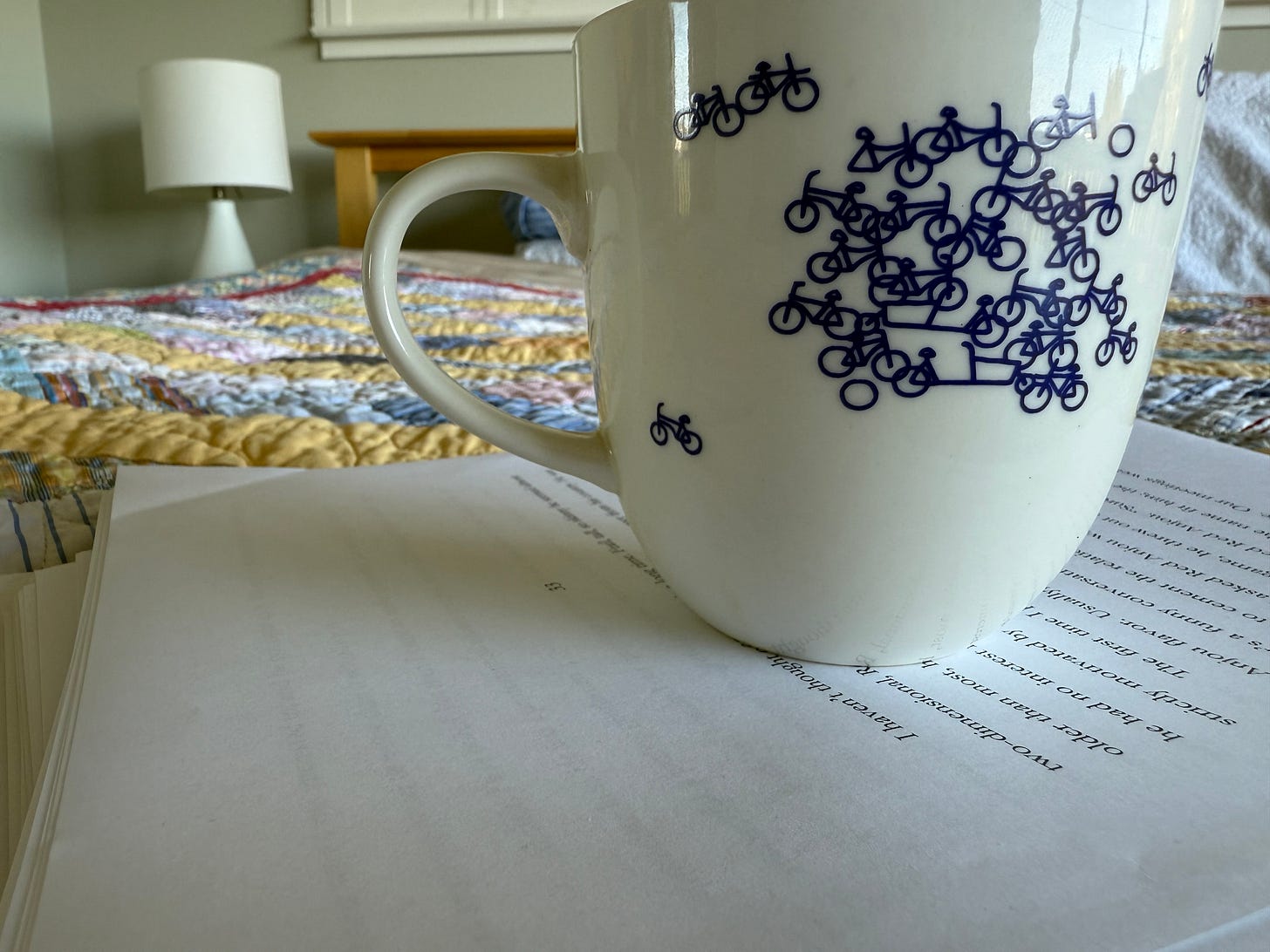Getting Lost in the Writing
notes on an addiction
I turned in a big writing project this weekend. I’d been working on it for well over a year, with intermittent bursts of intense activity. For the past three weeks, I’d worked on it from the time I woke up in the morning until I went to bed — with brief breaks for food, family time, laundry, errands, etc.
After I turned it in I had about three hours of intense relief, during which I drank a glass of wine, played poker with my son and husband, and just enjoyed being “done.”
Then I woke up the next morning with that low-level panic: what do I do NOW.
Now that my son is in college, I can immerse myself in all-day writing jags in a way I couldn’t do for 18 years. When you’re raising kids, only small segments of time each day are your own. As an empty nester, I’m writing with the kind of temporal immersion I had in my twenties. It’s liberating but also a reminder that I can get totally lost in this. It’s easy to go down the rabbit hole with my coffee at 7 a.m. and not peek my head out until everyone’s getting ready for bed.
Now that the project is turned in, I can’t stop thinking about the novel that’s overdue. Unfortunately, being a writing workaholic doesn’t mean I always meet my deadlines. I get lost in the weeds, laboring over a scene for days … and then deleting it. Every pass of a novel takes a few weeks, and revision requires many passes. Revise, print, edit, repeat. Over and over and over again. I’m deep into revision now — I can’t tell you how many passes I’ve done — and I want to get back to it right this minute. But I’m holding off because I know where that leads. So today I’m going take a break, get some sun, read a few chapters of a novel just for pleasure, have lunch without my laptop, go to a movie with my family, live a little.
Later this month, I’ll be flying across the country to move my college-aged son into his new apartment. It’s a big moment for him, moving out of the dorms into truly independent living for the first time. I want to be fully present and enjoy it with him. I want to put everything where it goes and stock the fridge and buy the toaster and put art on the walls and remind him how to make an omelette so his year gets off to a good start. That’s part of the reason I was so obsessed with getting that project turned in this weekend. I wanted it off my desk and out of my mind during this significant week.
I think most writers have some level of addiction to writing — an itch you get when you can’t carve out the time to immerse yourself in a project, and a laser focus you get when you’re deep in the project and forget everything else.
How do you handle your writing addiction? How do you know when it’s time to take a break? When is the last time you got so lost in a project you tuned out the world?



I am working on my second novel and try to get lost in it as much as possible. which can be difficult sometimes. My ability to write well is not at the level I had hoped it would be because I started late. But the fact is I do wake up every morning and if I can arrange to get lost in it enough, I can probably have a first draft done mid October. After that, the challenge for me will be to write, edit and revise the first draft again and again until it is ready to be sent for professional editing. My first novel has not been read by many people and the 2nd and 3rd ones might not be read by many people either. But it is better to give one's best effort and keep improving as much as possible with each book. And, may it be so, mission accomplished, I will have written a novel or three that each, that I like and enjoy, and that I wanted to write.
I tend toward the “I love having written” end of the spectrum. I’d love to be a writing workaholic, but instead I’ve had to develop a few techniques to overcome the resistance to sitting down at the keyboard. For me, inspiration comes during the act of writing, not before—although once the novel is complete and I’m doing the fine tweaking, that IS addictive.